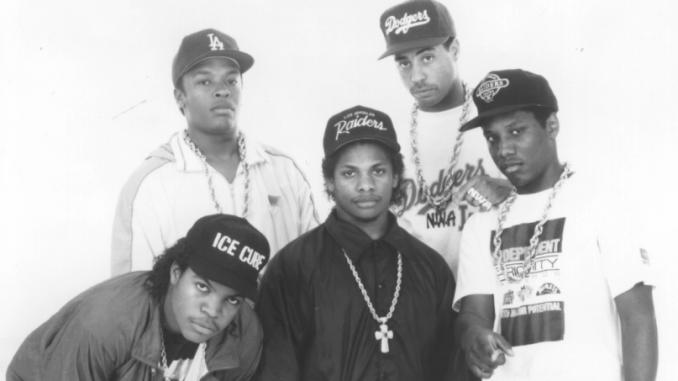
With titles like Death Cab for Cutie’s “Million Dollar Loan,” Franz Ferdinand’s “Demagogue,” and Radioinactive’s “Natural Born Loser,” it’s clear that “30 Days, 30 Songs” — a political music project by novelist Dave Eggers and music manager Jordan Kurland — holds no love for the Republican candidate for President. The project, which was lovingly described by The Washington Post as “a playlist of songs that Donald Trump will hate,” consists of 30 anti-Trump songs released over the span of 30 days (although as of a week ago, the project has ambitiously raised its goal to 40 songs).
After attending a Trump rally in California on behalf of The Guardian, it occurred to Eggers that the election would “benefit from the timely resurrection of the political protest song.” An opinion piece published by The Guardian earlier this year — entitled “Not talkin’ bout a revolution: where are all the protest songs?” — lamented the absence of a modern equivalent to the Vietnam generation’s iconic American protest music, and last year, The Atlantic examined D’Angelo and the Vanguard’s 2014 album “Black Messiah” in a celebration of “The Return of the Protest Song.” But if “30 Days, 30 Songs” aims to “revive” the protest song, it only serves as a quasi-revival, largely because protest music never actually died. Through hip-hop, protest music has remained an important medium for social critique.
“Rap is black America’s TV station,” Chuck D told Spin in a 1988 interview. That same year, his group Public Enemy dropped “It Takes a Nation of Millions to Hold Us Back,” a seminal hip-hop album that helped solidify the late 1980s as the most politically potent time in genre’s young life. “I stand accused of doing harm, cause I’m louder than a bomb,” Chuck D raps at the end of the first verse of “Louder than a Bomb,” “Both King and X they got rid of both / A story untold, true but unknown” wedged in the second. The year 1988 also saw the release of N.W.A.’s Straight Outta Compton, one of the most hard-hitting displays of political bravura in rap history. Much like the candid FBI indictments of “Louder than a Bomb,” N.W.A.’s “Fuck tha Police” refused to mince words about racist policing, even in a pre-Rodney King nation that did little to understand the impact that race-based law enforcement had and still has on Black communities in America. “Fuck tha Police” — one of hip-hop’s great protest songs — is a raw expression of angry dissent released to a nation that, even in 2016, expects reassurance and respectability in protests by its oppressed groups.
The turn of the decade gave way to further social upheaval in the genre. In 1990, Public Enemy released their follow-up to “It Takes a Nation,” the equally-incendiary “Fear of a Black Planet.” “Fear of a Black Planet” featured “Fight the Power,” inarguably the group’s most iconic anthem to date, in which Chuck D refers to Elvis Presley as a “straight up racist,” following with, “Motherfuck him and John Wayne.” The blunt expletives that Public Enemy lobbed at problematic American cultural heroes were jarring, but it was “rap metal” outfit Rage Against the Machine that truly defined ‘90s protest music with their mastery of both the technical finesse of hip-hop verbalism and the thundering fury of hard rock. In “Bulls on Parade,” frontman Zach de la Rocha barks at the military-industrial complex with the ferocity of a pit bull — “Weapons, not food, not homes, not shoes / Not need, just feed the war cannibal animal” — and in “Maria,” de la Rocha narrates a Mexican refugee’s brutal journey across the U.S. border, “the new line of Mason Dixon.” “New Millennium Homes,” meanwhile, addresses the kind of lower class uprising Karl Marx detailed in “Wage Labour and Capital,” and its indictment of the private prison industry was significantly ahead of its time.
If the Atlantic article is correct about one thing, it is that protest music has become markedly more popular, perhaps for the first time since the late ‘60s and early ‘70s. Even in 2016, hip-hop remains the torchbearer. Common and John Legend won Academy Awards for “Glory,” an original song written for the Martin Luther King, Jr. biopic “Selma” that draws direct parallels between Rosa Parks’ defiant act of social resistance in 1955 and the 2014 protests in Ferguson, Missouri following the police shooting of Michael Brown. The release of “Selma” director Ava DuVernay’s mass incarceration documentary “13th” earlier this year came with it another song by Common, “Letter to the Free,” with vocals by Bilal. “Letter to the Free” compares contemporary mass incarceration policies to American slavery, and argues that racial exploitation did not end with the passage of the Thirteenth Amendment; “Slavery’s still alive,” Common raps, “check Amendment 13.”
In a world in which two highly political Kendrick Lamar albums — one a dark Compton coming-of-age tale, the other a strongly pro-Black thesis on race — are certified Platinum by the RIAA, it is apparent that hip-hop is the current home of the protest song. But hip-hop always was. Hip-hop was born out of struggle, not unlike African slave spirituals. It is a response to subjugation, a method by which a marginalized group can cope with its collective situation, and an integral thread in the fabric of American folklore. “30 Days, 30 Songs” is a wonderful project, and it warms my heart to see so many musicians taking a stand against demagoguery and fascism. But when Dave Eggers calls for the resurrection of the protest song, I just cannot begin to understand what he means.
